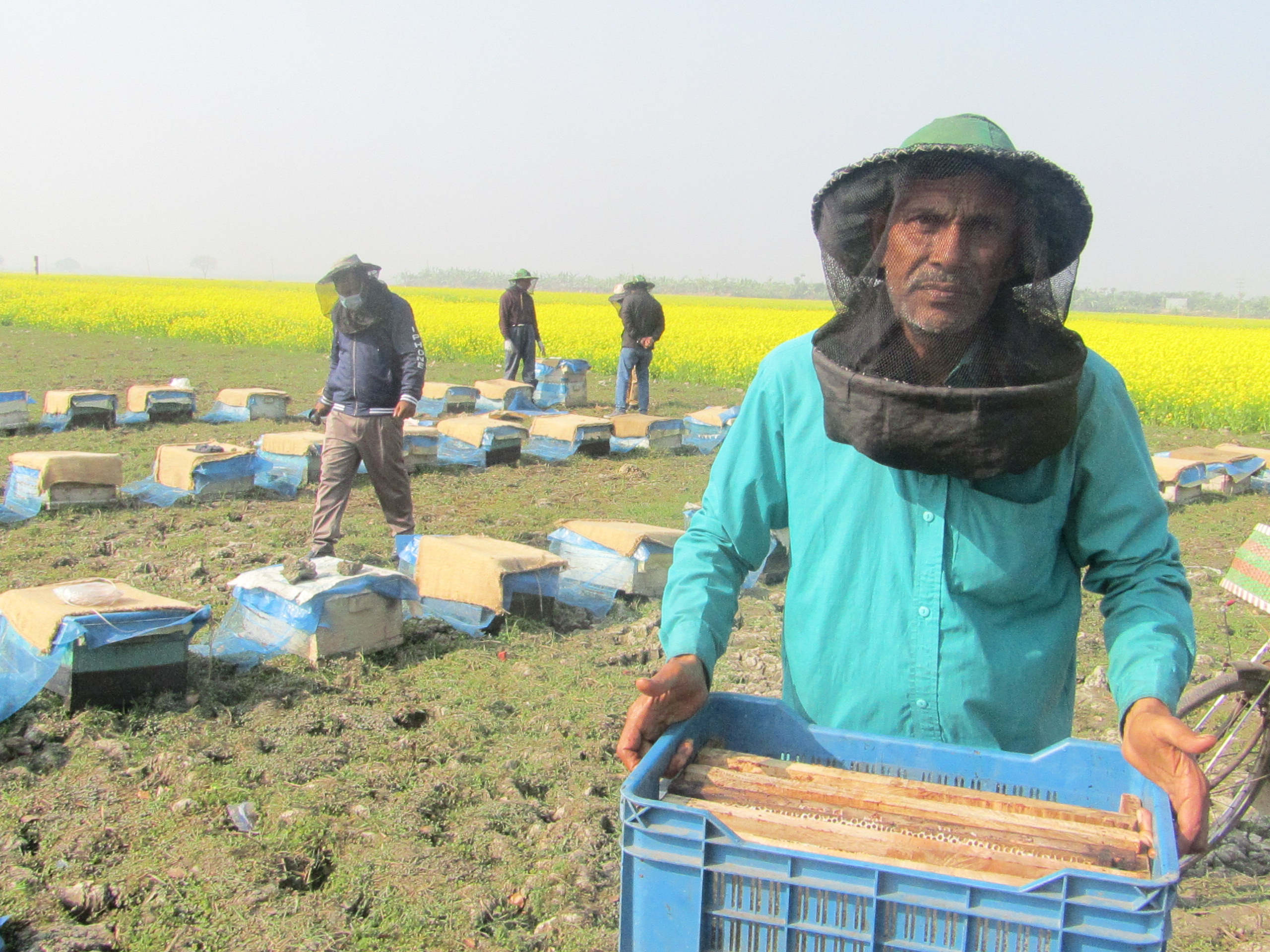01/06/2022
Farmer collectives promote pollinator-friendly practices for healthy and functioning ecosystem services and sustainability of agriculture.
SAFBIN programme in Bangladesh is promoting pollinator-friendly practices by introducing and expanding the population of natural pollinators and predators. In 2021, SAFBIN started working to increase the natural pollination of fruits and crops through honey bees. The smallholder farmer collectives headed by Md. Sader Ali in Paba district, started keeping bees to increase natural pollinators and also collect honey.
In Bangladesh, commercial beekeeping is still in its infancy. But in recent times, the number of commercial beekeepers has increased significantly. Md. Sader Ali, a resident of Hujripara village of Paba sub-district, Rajshahi, is now a commercial beekeeper. He is a progressive farmer of a smallholder farmer’s collective of the SAFBIN project. In 2020, Sader Ali participated in training on commercial beekeeping with the help of the SAFBIN project. Later, he received 30 honey bee boxes and a honey extractor machine from the project to initiate his commercial bee farm. Last year, Sader Ali joined a group of beekeepers in his area. Along with this group, he moves to the nearby regions where nectar-producing crops and plants abound.
The best-known honey in Bangladesh is Mustard honey. Mustard is grown in many districts of Bangladesh as an oilseed crop. Litchi, black cumin, sesame, coriander, drumstick, jujube, fruits, and forest and crop plants are good nectar-producing sources. Just as each flower is different in its color, shape, odor and design, each produces unique nectar. Bees visit nearly four million blooms in about two kilometers to gather one kilogram of honey. Since bees help in pollination and thus increase production, farmers welcome the beekeepers.
Beekeeping is not easy. It requires immense hard work. Through hard work, Sader Ali’s honey boxes have reached 130 in a year. From January to May, 2021, he harvested nearly 3,640 kg of honey. From January to April 2022 he harvested 1,800 kgs of honey from mustard, black cumin and litchi field.
This is Tk. 2,176,000 worth. He sold the honey into the local markets, Caritas outlet and in the big cities. Excluding 33% production cost, he made a profit of nearly Tk. 1.5 million.
Honey bees are the cross-pollinating agents. They not just produce honey but increase the crops’ natural pollination and increase the yield by a significant amount. In 2017, a group of researchers conducted a study to find out the role of honey bees on mustard yield. The honey bee was the primary insect pollinator during the mustard flowering season. Researchers selected mustard seeds of a variety Tori-7 for this experiment. They used three different treatments: control, netting with honey bees, and netting without honey bees. Honey bees helped mustard pollination and decreased the flowering period (6 days) of the mustard plant. Honey bees assisted the pollination of mustard and increased the number of pods per plant (14%) and the number of seeds per pod (11%). Honey bees enhances the pollination of the mustard plants, and netting with honey bees increases the mean seed yield (15%) per plant of mustard. However, it decreased the period of the flowering stage of mustard. The mustard yield was nearly 15% higher in honey bee foraging plots.
